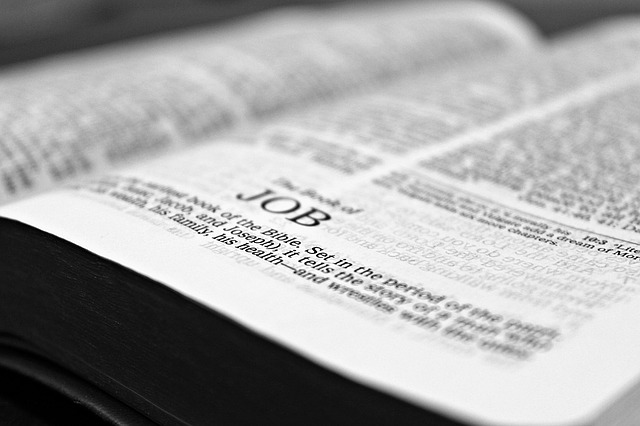
Sunday School Commentary and Preview 5 23-21

Greetings everyone and thanks for joining me for this edition of my Sunday School lesson commentary and preview. This Sunday’s lesson is entitled “Ezekiel: Street Preacher to the Exiles” and is found in Ezekiel 18:1-9, 30-32.
Ezekiel is the third in biblical order of the major prophets. He is preceded by Isaiah and Jeremiah and followed by Daniel. Ezekiel prophesied while an exile captive in Babylon. He was among those who were taken a few years before the final fall of Jerusalem.
One of the main messages in his prophesies was God’s fairness in dealing with individuals. His messages focused on God’s willingness to forgive those who repented of their sins and would do what was just and right according to the law.
Every person would be held accountable for their own sin and not for the sins of their parents. In doing what is fair and just, God placed a great emphasis on treating people with compassion. Love is demonstrated by refusing to take advantage of and exploiting others, especially when a person is in a position of privilege, power or authority.
Some examples of this included in the lesson text are committing adultery with someone’s spouse, withholding from someone something that is needful for their survival or comfort such as food or clothing or housing, threatening people with violence by using the law or force to get them to comply with demands without consideration of their wellbeing and ability to comply and profiting on the misfortunes and circumstances of the poor.
How we see and treat others is at the center of the meaning and fulfilling of the law of God. There are two other major points in the lesson text. The first is that all people belong to God.
Regardless of our moral behavior, our beliefs or anything else that distinguishes us from each other, every living person or soul is the property of God. God has an exclusive right and claim to every person’s life or soul.
Furthermore, He states that those souls or persons that sin shall die. They shall be cut off from life. Sin is our unwillingness to seek and live by God’s command which Jesus said can be summed up in loving or treating others as if they were you or the way you would want them to treat you. This is something that can be and must be done for us to avoid the adverse judgement of God or death.
The second point is that God said those who do what He commands shall live. In other words, they shall experience the opposite of death which is to be cut off from life. Since all people die a physical death, for this statement to be true God must be speaking of life beyond this physical world.
It must be speaking of a life beyond what we know and currently experience as life. So, both life and death which God speaks of is an experience beyond that of the cessation of bodily function.
In the concluding passage of the lesson text God said he has no pleasure in anyone’s death so He commands us to repent and live. Because all souls are His, God is saying He has the power to allow some souls to live and to allow others to die.
He is saying what happens to our individual souls as to whether we live or die is determined by our response to His command to live as He commands.
Well, I hope you will be able to attend SS this coming Sunday. Invite someone to come and share your thoughts with the class. Sunday School at Flag Branch will begin at 9:00 am and you are invited to join us at www.fbmbc.org and clicking the online services link.
You and others can also join us by dialing 508 924-2890. If you have any comments or questions before then, be sure to place them in the comment section of this preview and I will get back to you. So, as always remember to fear God and keep His commandments.
Pastor Jordan

Sunday School Commentary and Preview 5-16-21

Greetings everyone and thanks for joining me for this edition of my Sunday School lesson commentary and preview. This Sunday’s lesson is entitled “Jeremiah: The Suffering Preacher Of Doom” and is found in Jeremiah 38:14-23.
Jeremiah is called one of the major prophets along with Isaiah, Ezekiel and Daniel. He prophesied in Judah in the time leading up to the fall and destruction of Jerusalem at the hands of the Babylonians.
Jeremiah, like most true prophets, was not well received by those he prophesied to. The reason is mostly because they didn’t like what he had to say because it was in conflict with what they were doing and wanted to do. The same is true today.
Those who preach and teach the word of God in truth today tend to be marginalized, ridiculed, scoffed and scorned by society for the same reasons. As a result, God’s true prophets and preachers have suffered and continue to suffer today.
That’s why the “doom” in the lesson title can refer to the prophet as well as those he prophesied to. The word “doom” means destruction or unpleasant ending. In the lesson text, the king asked Jeremiah to tell him the true word of God.
But Jeremiah knew there were those who wanted to kill him, including the king, if they didn’t like what he had to say. Furthermore, Jeremiah told the king that he wouldn’t heed the word even if he told him so what would be the point.
From Jeremiah’s perspective, it would be his “doom” you might say to speak the truth. But the king gave Jeremiah his assurance that no matter what he said he would protect him from those who wanted to kill him including himself.
God’s prophets and preachers don’t always get assurances that they will be safe and protected against those who would, did and will harm them for speaking the truth. However in this case, Jeremiah was given and did get that assurance.
So why did the king want to hear what Jeremiah had to say when he knew it was probably something both he and most of his servants and advisors didn’t want to hear or do? Maybe he wanted to be sure about his choices and hear them again before making his final decision. Jeremiah told him that the Lord would spare his life and the city if he would surrender. Otherwise, total destruction or “doom” would come to him and the city.
The king told Jeremiah not to tell anyone what he told him if and when he was asked. Instead, he told him to tell them their conversation was about a place to stay or else he would die. And that is what Jeremiah said when he was questioned about what he and the king were talking about.
So, the king decided not to heed the word of the Lord. Maybe he thought it would not come to pass. Maybe it thought there was another way out of his situation. Maybe he thought he could escape even if the city fell. Whatever the reason, he didn’t obey the word of the Lord.
People today have that same choice. God’s word is clear on what shall happen to those who choose to disobey His word. Yet for reasons, many similar to that of the king, people refuse.
Well if you read on, everything happened just as Jeremiah said it would. The king tried to escape out the back of the city but was overtaken and caught. All his family and officials that were with him were killed before him. And after they made him watch them die, they put out his eyes and that is the way he lived until he died.
If the king had known this was going to happen to him and those he loved, would he had made the same choice? I don’t know. I think I would have chosen to surrender, rather that face that consequence. The problem is people, like this king, underestimate the cost of disobeying God. Let’s pray and hope we don’t make the same mistake.
Well, I hope you will be able to attend SS this coming Sunday. Invite someone to come and share your thoughts with the class. Sunday School at Flag Branch will begin at 9:00 am and you are invited to join us at www.fbmbc.org and clicking the online services link.
You and others can also join us by dialing 508 924-2890. If you have any comments or questions before then, be sure to place them in the comment section of this preview and I will get back to you. So, as always remember to fear God and keep His commandments.
Pastor Jordan
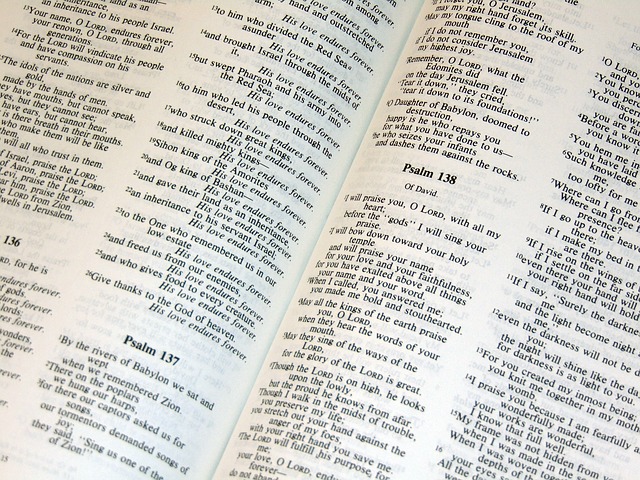
Sunday School Commentary and Preview 5-9-21

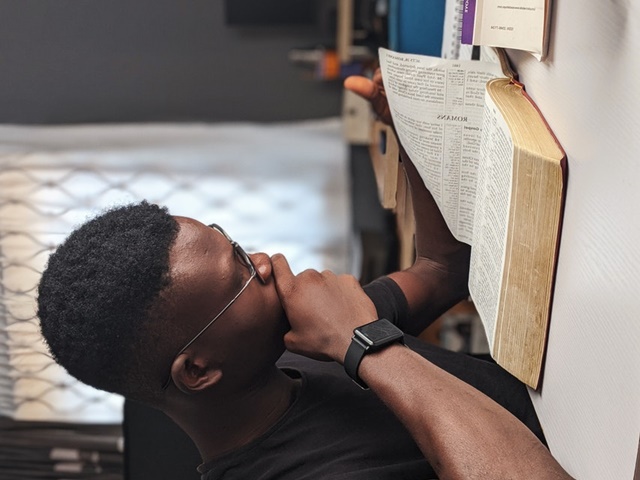
Sunday School Commentary and Preview 5-2-21

Greetings everyone and thanks for joining me for this edition of my Sunday School lesson commentary and preview. This Sunday’s lesson is entitled “Micaiah: Speaking Truth To Power” and is found in 1 Kings 22:15-23, 26-28.
Micaiah is one of those Old Testament prophets that not much is known about or written about. He appears in the Book of 1 Kings and in 2 Chronicles 18. In both cases, it gives the account of an inquiry by King Ahab of the Northern kingdom and King Jehoshaphat of the Southern kingdom of the prophets in the North as to whether they go to war against a king Ahab had already defeated twice before.
Ahab invited Jehoshaphat to join him in a campaign against a neighboring king to his north, Ben-hadad of Aram in Syria, who had taken and fortified the city from Ahab’s father Omri. Jehoshaphat’s son had married Ahab’s daughter which may account at least in part for Ahab asking Jehoshaphat to join him in war and Jehoshaphat agreeing.
While Ahab is described as a king which did that which was evil in the sight of the Lord, Jehoshaphat is described as one who “walked in all the ways of his father Asa; he did not turn away from them, but did what was right in the eyes of the LORD”. And while He fell short in some areas, by and large he was a king who feared the Lord.
So before going to battle, Jehoshaphat wanted to know what the Lord had to say about it. First Ahab called upon the 400 prophets he consulted and all of them said God will give him the victory and deliver Ben-hadad into his hands. But Jehoshaphat was not satisfied with them because they didn’t prophesy in the name of Yahweh, God of Israel.
So Jehoshaphat asked if he had a prophet who could do that. Ahab reluctantly admitted there was one, but that he didn’t like him because of what he had to say. This is where we finally meet Micaiah.
At first when asked the question of whether they should go to war, Micaiah repeats what the others prophets had said in such a way that had to let the king detect it was not the true word of the Lord. When he insisted he tell the truth, he told him it would be a disaster to go up against Ben-hadad. Furthermore, he told him that Yahweh had sent lying spirits to his prophets which he would believe and die after heeding their voice.
Not everyone is willing to tell those in power and authority something they don’t want to hear. Just as then, people now often surround themselves with others who will only say to them what they want to hear.
Today, most people don’t want to hear what God requires of them or be reminded of their sinful lives. They want to be told what they are doing is alright, just like Ahab. And because Ahab didn’t listen to the truth, but what he wanted to hear, he died from a wound sustained in battle and the dogs licked his blood as the prophet Elijah had said (1 Kings 21:19).
As so shall it be to all who have “itching ears” who go from church to church and preacher to preacher until they find someone who will overlook and allow them to feel comfortable in their sin.
Today, we are all called to speak “truth to power”. The power of pressure to conform to the expectations and practices of the culture we find ourselves in who want to define for themselves what is wrong or right, what is good or evil or even if there be any such thing.
Well, I hope you will be able to attend SS this coming Sunday. Invite someone to come and share your thoughts with the class. Sunday School at Flag Branch will begin at 9:00 am and you are invited to join us at www.fbmbc.org and clicking the online services link.
You and others can also join us by dialing 508 924-2890. If you have any comments or questions before then, be sure to place them in the comment section of this preview and I will get back to you. So, as always remember to fear God and keep His commandments.
Pastor Jordan
Comments
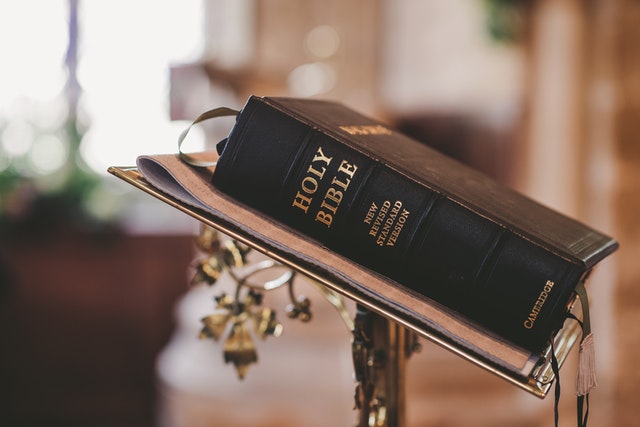
Sunday School Commentary and Preview 4-25-21

Greetings everyone and thanks for joining me for this edition of my Sunday School lesson commentary and preview. This Sunday’s lesson is entitled “A Plea For Restoration” and is found in Lamentations 5:1-22.
The name of the book “Lamentations” means “weep” or “tears”. It is an acrostic which is a poem, word puzzle, or other composition in which certain letters in each line form a word or words. The Book of Lamentations is a composition of 5 songs, poems or chapters describing the fall of Jerusalem, the judgment and mercy of God and the destruction of Judah at the hands of Babylon in the form a 22 Hebrew letter acrostic written by the prophet Jeremiah.
The five chapters or songs emphasize a different pronoun. Chapter one uses “She” to refer to the city and the people within the city. Chapter two uses “He” to refer to God and His judgment. Chapter three uses “I” as seen from the point of view of Jeremiah as one of those affected. Chapter fours uses “they” to refer to the onlookers and those outside the nation. And finally, the last chapter uses “we” to refer to the redemption and return of those who were left back to the land one day.
The lesson text is from the 5th chapter or song in which Jeremiah make an appeal to mercy and redemption. He begins with by asking God to “remember” them and “look” upon us with pity. He describes their utter shamefulness and helplessness. Their devastation and destruction left them nothing to cling or point to of their former glory.
No group or demographic among them had been spared. From the youngest to the oldest, from the richest to the poorest and everyone in between had been caught up in the judgment of God. They were people who were left without anything left; captives and beggars and their plight for all the world to see.
This was something very difficult for Jeremiah to see and experience with his own eyes. To see his nation, people, their culture and wealth taken away was what he attempted to capture in the songs of Lamentations. But perhaps the saddest part of all was that all of it could have been prevented.
God repeatedly warned them and gave them space to repent. But they continuously ignored His warnings and dismissed His prophets. Had they believed it was going to be this tragic, perhaps they would have repented. They were so confident is their ability to survive without God, they refused to obey His voice despite the strongest warning of the consequences their disobedience.
At the end of his lament, Jeremiah asks God to restore them someday if He has not completely destroyed them and His anger toward them will not cease. They were judged and rightfully so. But God left enough of them so that one day, they would return and He would once again restore their identity as His people.
This lesson should serve as a warning to all of us who fear God. God will judge sin and sinful behavior of any nation. God has His own way and time to judge everyone. Because judgment that is delayed seems like judgment denied, people continue to ignore God’s warnings and live ungodly lives.
As believers, we must resist the urge to give up and stop trying to convince people to turn to the Lord. When judgment does come and people are eternally lost, it will not be because we didn’t try our best to convince them to come onto the Lord’s side.
If and when the nation falls under God’s judgement, we, like Jeremiah, will also suffer through the consequences just like he did. The land, people and culture he knew was in ruins. And it’s better not to fall than to plea for restoration.
Well, I hope you will be able to attend SS this coming Sunday. Invite someone to come and share your thoughts with the class. Sunday School at Flag Branch will begin at 9:00 am and you are invited to join us at www.fbmbc.org and clicking the online services link.
You and others can also join us by dialing 508 924-2890. If you have any comments or questions before then, be sure to place them in the comment section of this preview and I will get back to you. So, as always remember to fear God and keep His commandments.
Pastor Jordan
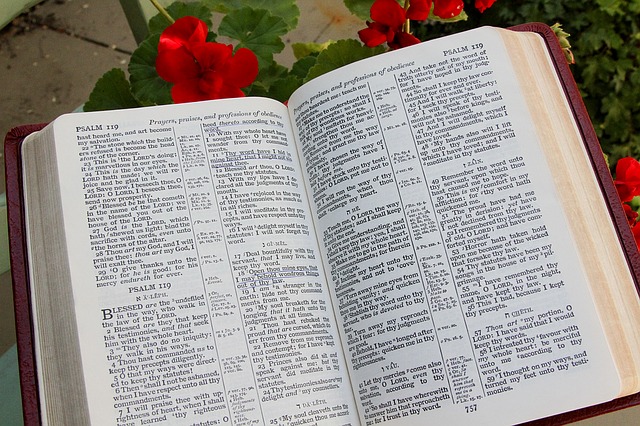
Sunday School Commentary and Preview 4- 18-21

Greetings everyone and thanks for joining me for this edition of my Sunday School lesson commentary and preview. This Sunday’s lesson is entitled “Nehemiah: The Captive Cupbearer Rebuilds a Nation” and is found in Nehemiah 2:11-20.
Nehemiah, whose name means “consolation or comforted of the Lord” led and completed a restoration effort of the walls of Jerusalem. He was an official in the court of the Persian king Artaxerxes in the role of cupbearer.
After receiving word from his fellow Jewish brethren who had been and returned from Jerusalem that the city was in disrepair with no wall, Nehemiah began to have a burden for the city. In his day, the walls around a city were very important for every aspect of safety and prosperity of a city.
Without walls a city was laid bare and open to any and everything and everyone who wanted to come into the city when and wherever it or they wanted. He fasted and prayed for God to have mercy upon His covenant people and to use him and grant him favor to help restore the city.
After noticing that something was distressing his cupbearer, Artaxerxes asked Nehemiah what was wrong. He told the king of the plight of Jerusalem and of his desire to go help them restore the city.
The king granted Nehemiah his request along with letters of authority and resources to rebuild the city. He led the third and final recorded return of exiles from Babylon to Jerusalem. The lesson text is about what He did next.
Upon his arrival Nehemiah took the first few days and nights to survey the damage to the wall and asset what needed to be done without informing anyone why he was there or what he was doing. Once his assessment was complete, he gathered some important Jewish leaders and some workers together.
He told them why he was there, the authority he had and what role he believed God was having in all of this. He convinced them the time had come for the wall to be rebuilt and that they could do it.
But when some of the others who saw that the Jews were starting to rebuild the wall, they mocked them and accused them of doing it so they could rebel again the king. Nehemiah’s reply to them was that the building of this wall was of none of their concern or business and that their God was going to see that they were successful.
And successful they were despite all of the attempts of others to stop or impede the rebuilding of the wall. After 52 days, they had successfully repaired the wall so that there was no breach in it. Only the doors or gates around the wall had to be set and the wall continued up to its permanent height.
This account of the rebuilding of the wall of Jerusalem has been an inspiration to many since who face opposition when doing something for the kingdom of God and other struggles for something good. We must always remember that no matter how good or noble something may be, there is likely some who are opposed to what is being done and who do not what to see it or you successful.
Jesus never told His disciples that their work would be easy. In fact, He warned of trials and tribulations. But He also said He would be with His own until the end. Nehemiah is an example of one who trusted that God was with him and would see him through despite what came his way.
He went on to do other things to help the Jews to reestablish their covenant relationship with God. We can look at Nehemiah’s life as an example of one who was dedicated to helping his own return to God. By observing his life and commitment, we can be reassured by having that same kind of faith to see us through whatever God is calling us to do and finish in our own Christian life.
Well, I hope you will be able to attend SS this coming Sunday. Invite someone to come and share your thoughts with the class. Sunday School at Flag Branch will begin at 9:00 am and you are invited to join us at www.fbmbc.org and clicking the online services link.
You and others can also join us by dialing 508 924-2890. If you have any comments or questions before then, be sure to place them in the comment section of this preview and I will get back to you. So, as always remember to fear God and keep His commandments.
Pastor Jordan
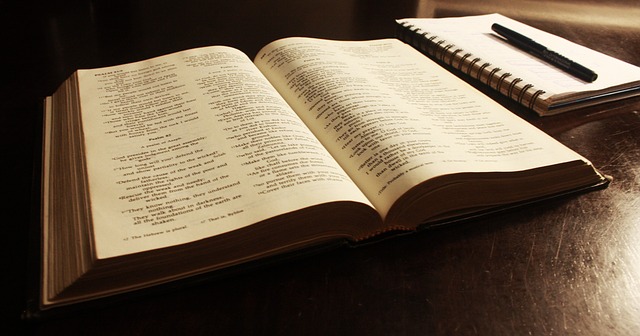
Sunday School Commentary and Preview Apr 11 21

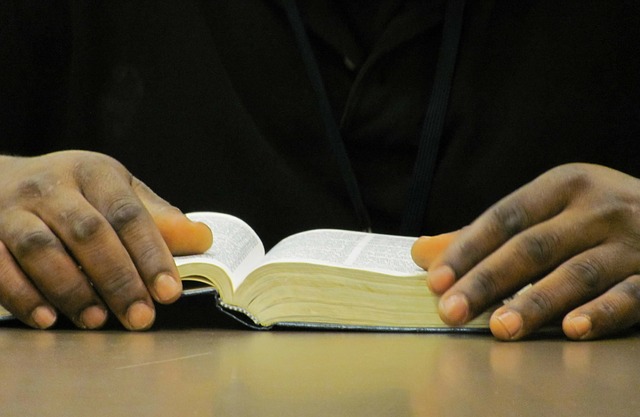
Sunday School Commentary and Preview Apr-4-21

Greetings everyone and thanks for joining me for this edition of my Sunday School lesson commentary and preview. This Sunday’s lesson is entitled “The Suffering Servant Brings Salvation” and is found in Isaiah 53:4-11.
Today’s text describes a person who is accepted and received by God as a sacrifice or atonement for the sins, iniquity and transgressions of people. Jesus Christ is believed by Christians to be the One who fulfills this description.
Jesus suffered and died from one of the cruelest forms of death implemented by mankind. Crucifixion was painful, lingering and humiliating to those who were subjected to it. It was designed to send a message to others as well as put the person to death.
This passage raises at least two questions that are fundamental in understanding the Christian faith. Why did God require a sacrifice or atonement for the sins of the people and why did the One who was the sacrifice have to suffer?
Like it or not, man is being held accountable for what he does with the life he has been given. If he obeys God, he shall continue to live. But if he disobeys God, he shall die. The Apostle Paul declares that “all have sinned” and the soul that sins shall die. This is God’s law for the man He created.
Someone may ask, “what about a baby and what sin or evil has it committed?”. It’s sin is “trespassing” in being born. It has no right to be here. It is like someone who enter a country illegally. So when Adam died, all men (including babies) died in Adam. So, whether it is something we did as individuals or not, we are all under or guilty of sin.
And so, you may conclude or say that death is a harsh punishment or judgement for the evil and sin of disobeying God. But what we think about God’s judgement doesn’t change it. And although we may not understand it or agree with it, we know that it is right because God is righteous, just and holy.
So, the One in the lesson today died to satisfy the righteous judgement of God. And because by one all died, by One all shall be made alive. This One takes the place of judgement and death of all who will repent and obey God. This is why the One in the lesson had to die.
But why did He have to experience pain and suffering in His life and death? To let all men know they have a choice to make between good and evil. Pain and suffering is the result of evil. The One on the cross is saying this is what the result of evil is. And by going up on the cross, He is saying for us to take a good look at it.
After seeing evil and knowing what it does, if we refuse and overcome it, we shall live. This by the way is God’s grace and mercy. However, if we continue in sin and evil with this same knowledge, we shall die.
So as we read the lesson text, God is doing two things. He is taking care of our sin debt which is death in His Own body and by suffering He identifies with mankind and is bringing judgement on all who refuse to repent and continue to have pleasure in and partake of evil and unrighteousness.
It just wasn’t enough for Him to die, but by dying the death He died, He has brought judgement upon all mankind by forcing us to choose. Jesus said that if He would be lifted up from the earth, that He would draw all mankind unto Himself and thereby must all appear before His judgement seat.
Well, I hope you will be able to attend SS this coming Sunday. Invite someone to come and share your thoughts with the class. Sunday School at Flag Branch will begin at 9:00 am and you are invited to join us at www.fbmbc.org and clicking the online services link.
You and others can also join us by dialing 508 924-2890. If you have any comments or questions before then, be sure to place them in the comment section of this preview and I will get back to you. So, as always remember to fear God and keep His commandments.
Pastor Jordan

Sunday School Commentary and Preview 3- 28-21

Greetings everyone and thanks for joining me for this edition of my Sunday School lesson commentary. This Sunday’s lesson is entitled “Elijah: Prophet of Courage” and is found in 1 Kings 18:5-18.
Elijah is one of the best known Old Testament prophets. He appears rather suddenly during the reign of Ahab Israel’s 7th king. There is not much known about his background only that he was a Tishbite of the inhabitants of Gilead. At the time of his appearance, Israel was divided into the Northern Kingdom referred to as Israel and the Southern Kingdom referred to as Judah.
The bible says that Ahab was worst than all the kings before him and led the nation into a deep spiral of idolatry. He married a Phoenician princess named Jezebel and allowed her to establish Phoenician worship on a grand scale throughout Israel. She, with Ahab’s consent, persecuted the prophets of God and setup her own prophets in their place.
It was against this backdrop that Elijah emerges to challenge this idolatry and call Israel back to God at the risk of his own life. He first shows up and tells them that there will be no rain until he gives the word. For the next two years God protects and takes care of Elijah while Ahab seeks him.
At some time during the third year of the drought, God tells Elijah to go and present himself before Ahab and that He will send rain. It is at this point the lesson text begins.
Ahab sends Obadiah, another prophet of God who has a book in the Old Testament, to look for water and grass to give to his livestock. While carrying out this task, he meets Elijah. He recognizes Elijah as the senior prophet of God, bows down toward the ground and asks him is it really him.
Elijah acknowledges him and tells him to go to Ahab and tell him he needs to meet him. Obadiah in response tells Elijah that Ahab has been looking everywhere for him and if he goes and tell him that I have found you and the Spirit of God sends you somewhere else before I can bring him, he will certainly kill me.
Furthermore, he says that I’m own your side and fear God. He asks him if he had not heard how he has hidden the prophets of God from Jezebel and that he ministers to their needs. But Elijah assures Obadiah that he will be waiting on Ahab and there is nothing to fear.
So Obadiah set up the meeting and Ahab arrives and greets Elijah by saying that he is the cause of Israel’s troubles. Elijah counters and tells Ahab that it is not I that is the cause of Israel’s trouble but it is you and your idolatry. That ends the text of the lesson, but it is only prelude to a tumultuous relationship between Ahab, Jezebel and Elijah that will end with the prophet prophesying both of their deaths.
Elijah is highly regarded for his courage and steadfastness in carrying out God’s will. The bibles says that Elijah was carried up into heaven on a chariot and did not see death. He is also seen in the New Testament along side Moses when Jesus was transfigured. There is so much more to read about Elijah, but it will have to wait for another lesson.
Well, I hope you will be able to attend SS this coming Sunday. Invite someone to come and share your thoughts with the class. Sunday School at Flag Branch will begin at 9:00 am and you are invited to join us at www.fbmbc.org and clicking the online services link. You and others can also join us by dialing 508 924-2890.
If you have any comments or questions before then, be sure to place them in the comment section of this preview and I will get back to you. So, as always remember to fear God and keep His commandments.
Pastor Jordan

Sunday School Commentary and Preview 3- 21-21

Greetings everyone and thanks for joining me for this edition of my Sunday School lesson commentary. This Sunday’s lesson is entitled “Huldah: Prophet of Wisdom” and is found in 2 Kings 22:14-20.
Huldah is one of the few female prophets that are mentioned by name in the Old Testament. She lived in the lower part of Jerusalem and prophesied during the same time as Jeremiah and Zephaniah. She was a possessor of the prophetic gift and it is said that the people communed and talked with her.
When the book of the law was discovered during the restoration of the temple in Jerusalem, the king Josiah wanted to inquire of the Lord what it all meant. Josiah’s servants had found the book and read portions of it to the king.
When the king heard the words of the text, he was very disturbed and torn his clothes as a sign of his distress because the book pronounced very hard judgements again the nation for disobedience.
Josiah was the son of Amon and the grandson of Manasseh. Manasseh was only 12 when he became king and ruled for 55 years. By all accounts he was one of the worst kings of Judah. He allowed and practiced all types of abominations and idolatries, even sacrificing one of his sons, and led the people to do the same idolatrous worship.
Before the end of his reign the prophets of his time warned him and called on him to stop what he was doing and return to the Lord, but he wouldn’t listen and refused. As a result of his and the nation’s sin, the Lord spoke through those same prophets and foretold the destruction of Jerusalem and Judah.
When Manasseh died, his son Amon began to rule at the age of twenty-two, but his reign only lasted two years. He followed in his father’s wicked footsteps and did that which was also evil in the sight of the Lord.
His servants conspired against him and killed him. But the people rose up and killed all those who had a part in that conspiracy and Amon’s son Josiah followed his father and began to reign at the age of eight.
Josiah was completely different from his father and grandfather and walked in the ways of David and did that which was right in the sight of the Lord. In the eighteenth year of his reign, when he was twenty-six, he ordered the repair of the temple and the book of the law was found during the repair work.
The bible doesn’t say if Huldah knew the contents of the book before it was found. But she repeated what the prophets in the day of Manasseh had said. She told those who came to her to inquire of the Lord about the book and what it meant to go back and tell the one who sent them this word of the Lord.
The word was that indeed Jerusalem will be destroyed and it couldn’t be prevented for all the sins the people had committed. However, because of his heart, Josiah will not see the destruction in his lifetime because the Lord saw how he walked before him, had humbled himself and weep and tried to lead the people in the right way.
Josiah went on to reign thirteen more years. He had all the people to assemble and the book of the law read to them. After the reading, he led the people into renewing the covenant with God and to follow Him with all their heart and soul.
Jeremiah and Zephaniah were both prophets we know who were contemporaries of Huldah, but Josiah had faith in her and didn’t go outside Jerusalem and bypass her for a word from the Lord. She told him what thus said the Lord.
Well, I hope you will be able to attend SS this coming Sunday. Invite someone to come and share your thoughts with the class. Sunday School at Flag Branch will begin at 9:00 am and you are invited to join us at www.fbmbc.org and clicking the online services link. You and others can also join us by dialing 508 924-2890.
If you have any comments or questions before then, be sure to place them in the comment section of this preview and I will get back to you. So, as always remember to fear God and keep His commandments.
Pastor Jordan

